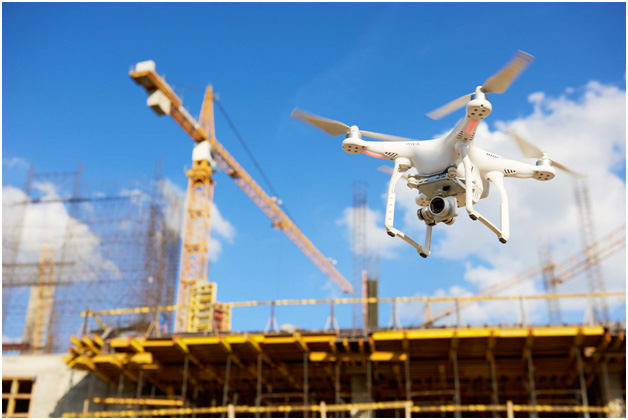Drones in Construction: Soaring to New Heights in Project Surveillance?
In the world of construction, staying ahead of the curve is crucial for success. Technological advancements have transformed the industry over the years, and one of the most significant innovations is the use of unmanned aerial vehicles, commonly referred to as drones. These devices have revolutionised project surveillance by providing construction teams with unparalleled capabilities in monitoring, data collection, and project management. In this blog, we will examine the various ways drones are transforming the construction landscape and enhancing project surveillance.
Aerial Surveying and Mapping
Historically, construction projects have necessitated extensive manual surveying and mapping processes that were frequently time-consuming and prone to error. However, with the integration of drones, construction teams can now efficiently survey large areas and create high-resolution maps in a fraction of the time. Drones equipped with advanced cameras and Light Detection and Ranging (LiDAR) technology capture detailed images and topographical data, enabling the precise mapping of construction sites. This not only expedites the planning phase but also provides a comprehensive understanding of the terrain, resulting in more informed decision-making.
Real-Time Progress Monitoring
The utilisation of drones in construction provides a crucial advantage in the form of real-time project progress monitoring. Traditional means of progress monitoring, such as manual inspections or stationary cameras, are restricted in their scope. In contrast, drones can fly over the construction site, capturing high-definition images and videos from various angles. Project managers can remotely access this data, which enables them to evaluate the status of different tasks, identify bottlenecks, and make timely adjustments to keep the project on schedule. Monitoring project progress in real-time is a key benefit of using drones in construction, as it provides project managers with the necessary information to make informed decisions and ensure successful project completion.
Enhanced Safety Inspections
Ensuring safety in construction sites is of utmost importance, and the use of drones has emerged as a valuable tool for enhancing safety inspections. Drones possess the capability to reach inaccessible or hazardous areas, such as rooftops, bridges, and high-rise structures, without putting human inspectors in harm



